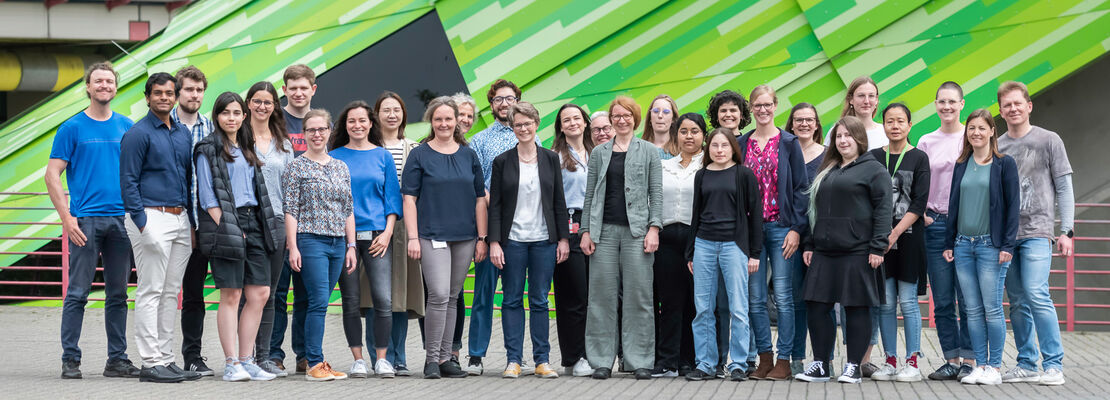Message archive
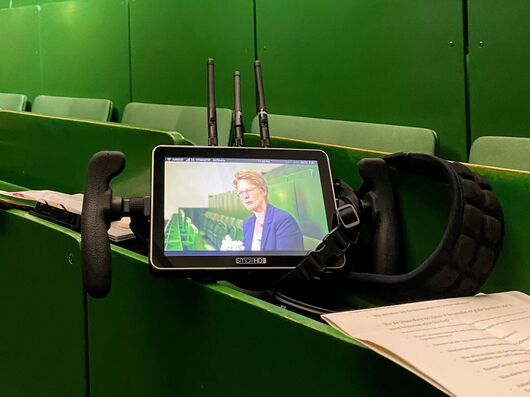
Zombies – myth or truth
Zombies – these seemingly deceased, will-less creatures - have been stirring the imagination of authors, filmmakers and game developers for decades. But is it just science fiction or is there some…
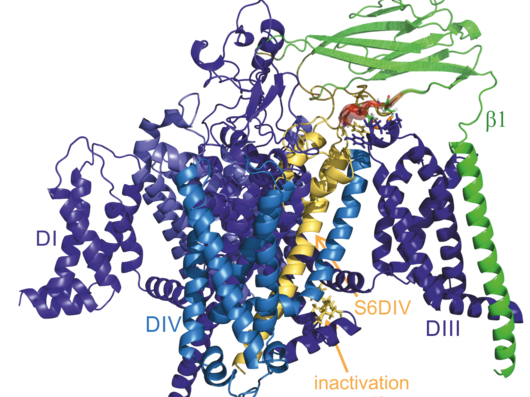
World Wide Sodium Channel Seminar Series
An online lecture series on voltage-gated sodium channels is co-organized by Prof. Angelika Lampert from the Institute of Physiology and Prof. Dr. Hugues Abriel from University of Bern, Switzerland.…

Does every Nav1.7 variant lead to pain?
Mutations in the voltage-gated sodium channel Nav1.7 are associated with human pain. There are genetic mutations - also called variants - that lead to chronic pain in everyone who has them in their…

Stem cells as a model for Huntington's disease?
Huntington's disease (HD) is an autosomal dominant neurodegenerative disorder caused by an expanded polyglutamine repeat in the huntingtin gene. The neuropathology of HD is characterized by the…
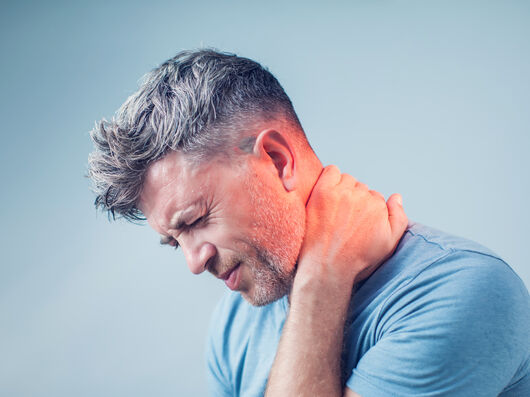
Lesetipp: Schmerz ist reine Kopfsache
Autsch – das tat weh! Wer sich verbrennt, schneidet oder anderweitig verletzt, spürt den Schmerz in der Regel sofort und reagiert reflexartig. Die Hand zieht zurück, das Messer wird fallen gelassen,…

Grünenthal, Uniklinik RWTH Aachen and RWTH Aachen University collaborate to advance pain research
Grünenthal, Uniklinik RWTH Aachen and RWTH Aachen University announced a collaboration to advance the development of next-generation pain medicines. The collaboration involves the institutes of Dr…
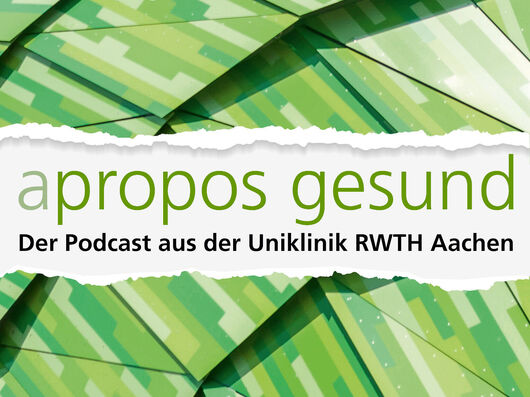
Für die Ohren: Die Dynamik biologischer Vorgänge
Wenn wir uns in den Finger schneiden, transportieren Nervenzellen das Signal „Schmerz" in den Kopf. Ganz so einfach ist dies allerdings nicht. Was passiert dabei genau? Welche Kanäle sind beteiligt…
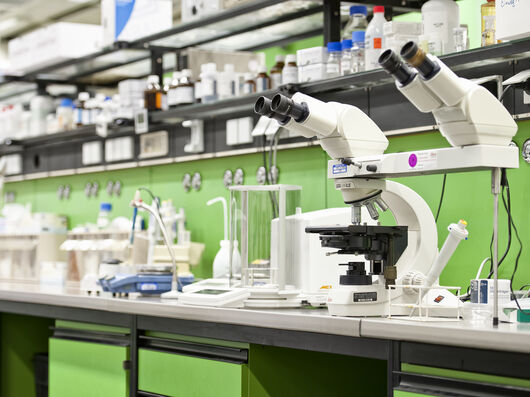
Natriumkanäle dimerisieren
Studie zeigt, dass Natriumkanäle als Dimer vorliegen und mit einem weiteren Kanalmolekül vergesellschaftet sind.

Prof. Angelika Lampert mit dem Aachener Tierschutzpreis ausgezeichnet
Die Medizinische Fakultät der RWTH Aachen University vergibt im Rahmen des transparenten Umgangs mit Tierversuchen den Aachener Tierschutzpreis. Univ.-Prof. Dr. med. Angelika Lampert darf sich in…
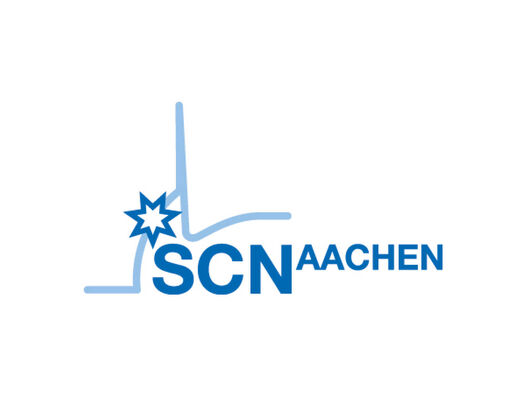
Prof. Lampert erhält SyncroPatch 384i Research Grant für das Sodium Channel Network Aachen
Univ.-Prof. Dr. med. Angelika Lampert vom Institut für Physiologie an der Uniklinik RWTH Aachen ist Gewinnerin des SyncroPatch 384i Research Grant. Mit der Forschungszuschuss-Initiative unterstützt…
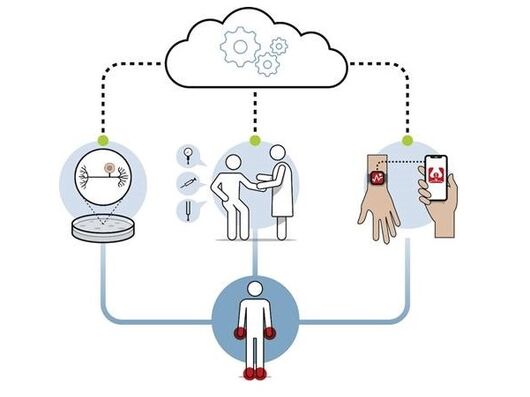
Projekt Bio²Treat – Neue Forschungsansätze für chronische Schmerzpatienten
Grünenthal und die Uniklinik RWTH Aachen geben heute bekannt, dass sie eine Forschungskooperation eingegangen sind, um neue Behandlungsansätze für Patienten mit neuropathischen Schmerzen zu…
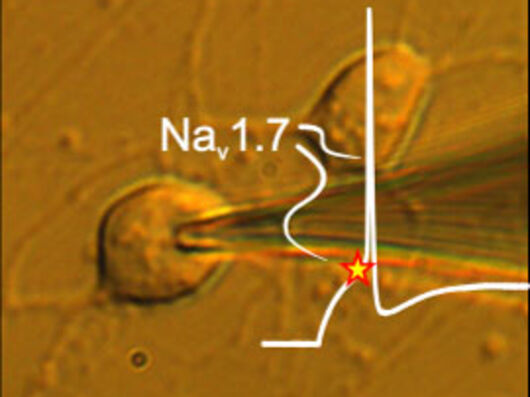
Chronic pain: pioneering research on the molecular basis of pain sensation published in the international journal PAIN
Neuropathic pain syndromes are caused by a genetic modification that affects peripheral nerve fibres. Therapy of these syndromes is challenging as treatment is often unsatisfactory. Mutations of the…

